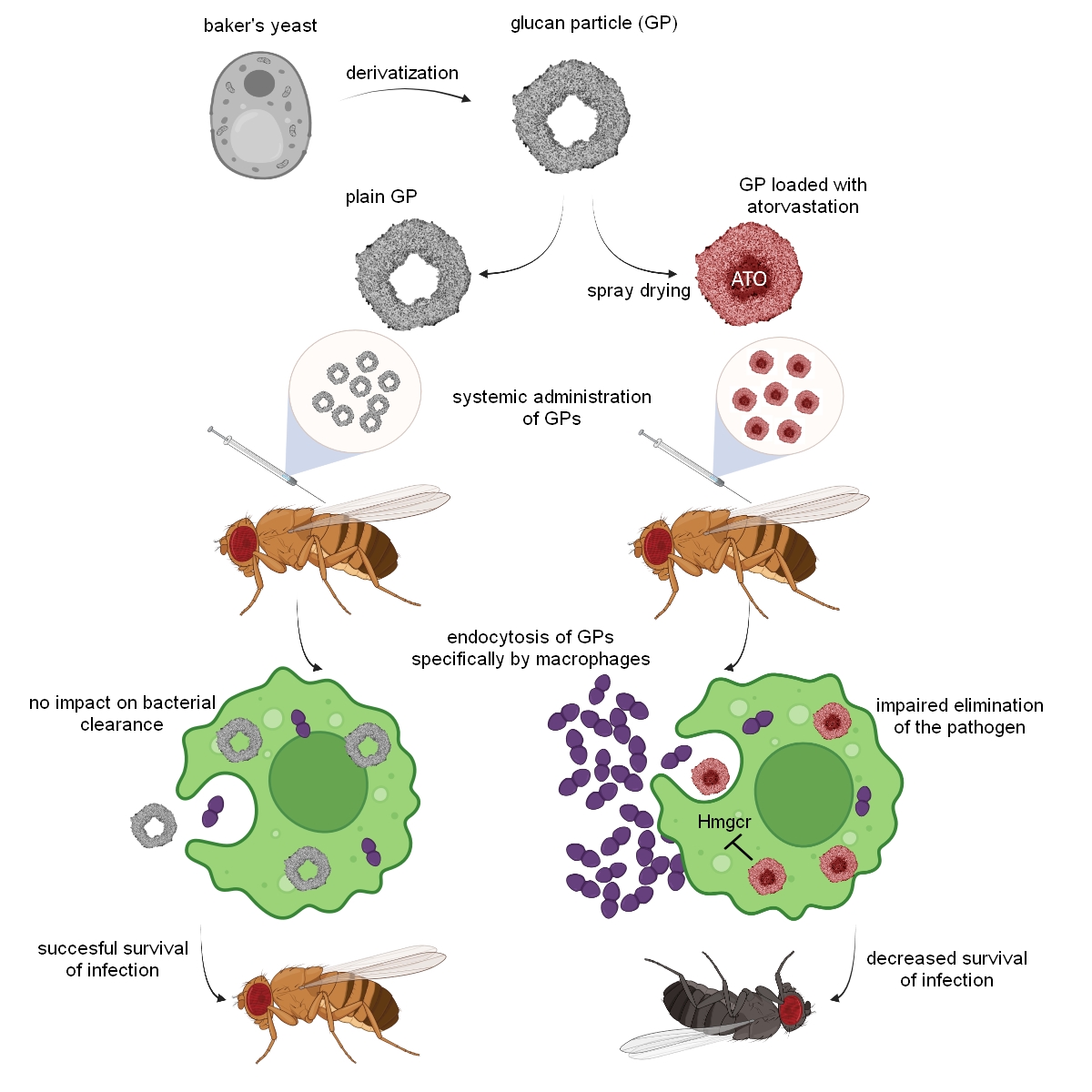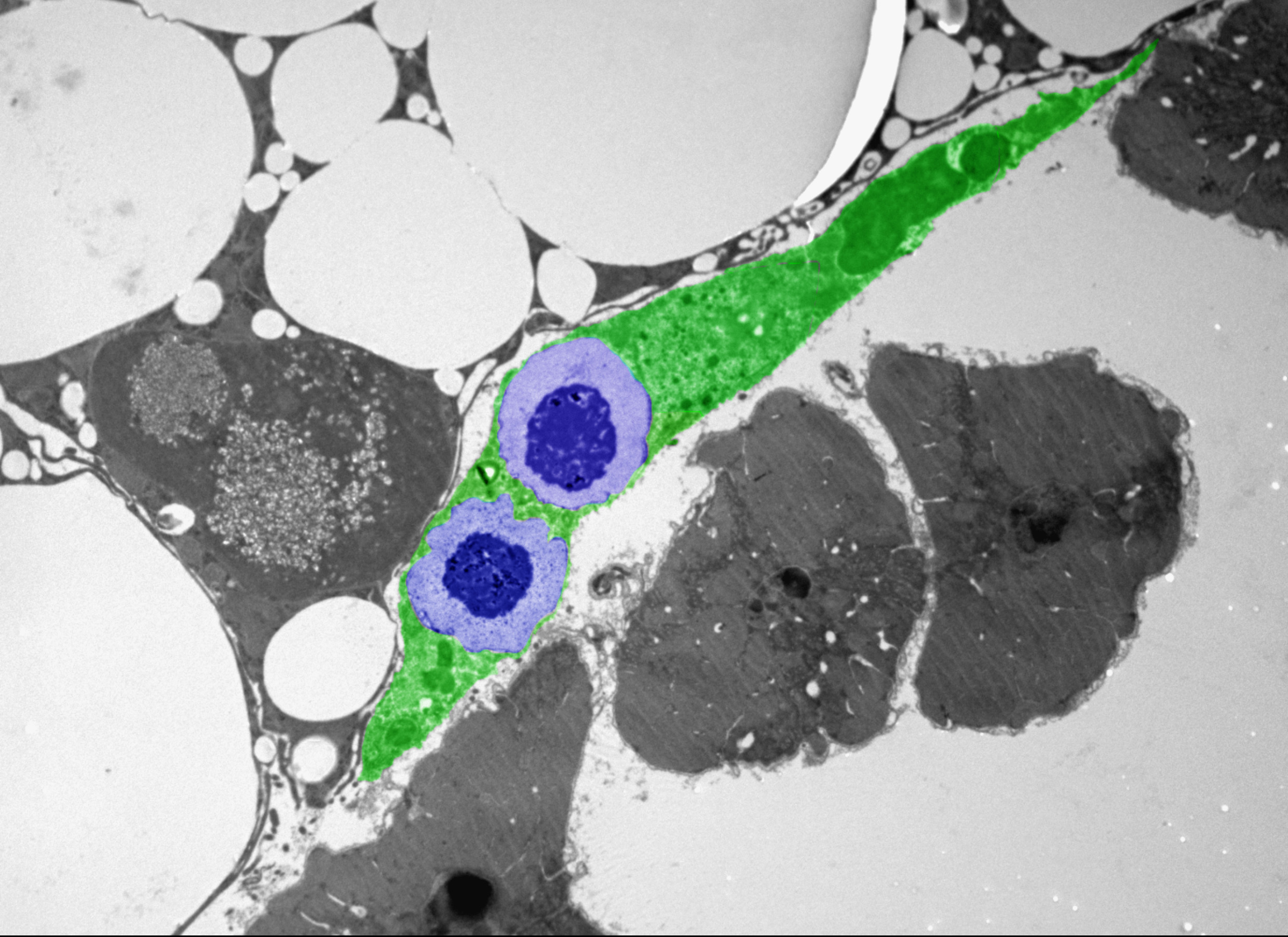Inhibition of mevalonate pathway by macrophage-specific delivery of atorvastatin prevents their pro-inflammatory polarisation

Adjustment of the cellular metabolism of pro-inflammatory macrophages is essential for their bactericidal function; however, if induced chronically, it underlies the development of many human diseases such as atherosclerosis, metabolic syndrome or diabetes. Therefore, intervention of macrophage metabolic polarisation has been recognised as a potent strategy for their treatment. Although many small-molecule inhibitors affecting macrophage metabolism have been identified, their in vivo administration requires a tool for macrophage-specific delivery to limit their potential side effects.
In this study, the research group led by Dr. Adam Bajgar established Drosophila melanogaster as a simple experimental model for in vivo testing of macrophage-specific delivery of small-molecule inhibitors. The authors showed that yeast-derived glucan particles (GPs) are suitable for macrophage-specific delivery of atorvastatin. Atorvastatin is an inhibitor of hydroxy-methyl-glutaryl-CoA reductase (Hmgcr), a key enzyme of the mevalonate pathway. Systemic administration of GPs loaded with atorvastatin leads to intervention of mevalonate pathway specifically in macrophages, without affecting HMGCR activity in other tissues. Using this tool, they further demonstrated that the mevalonate pathway is essential for the pro-inflammatory polarization of macrophages, their successful fight against bacterial infection, and thus for the survival of the infected individual.
Krejčová, G., Ruphuy, G., Šalamúnová, P., Sonntag, E., Štěpánek, F. & Bajgar, A. (2024) Inhibition of mevalonate pathway by macrophage-specific delivery of atorvastatin prevents their pro-inflammatory polarisation. Insect Molecular Biology, 1–15. Available from: https://doi.org/10.1111/imb.12900
Contact: Mgr. Adam Bajgar, Ph.D. (bajgaa00 at prf.jcu.cz)


Pictures:
1) Glucan particles with atorvastatin prepared by the "spray drying" method are specifically recognized and engulfed by immune cells of octopi. In these cells, atorvastatin is then released from the particles and inhibits the activity of a key enzyme of the mevalonate pathway, which subsequently results in an impaired ability of the immune cells to fight the bacterial infection.
2) Transmission electron microscope image showing an octopus immune cell (green) containing glucan particles with atorvastatin (blue). Credit: Gabriela Krejčová, Adam Bajgar

